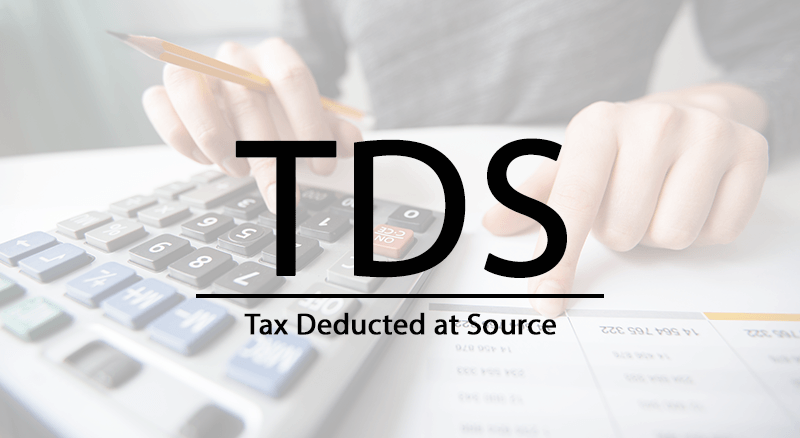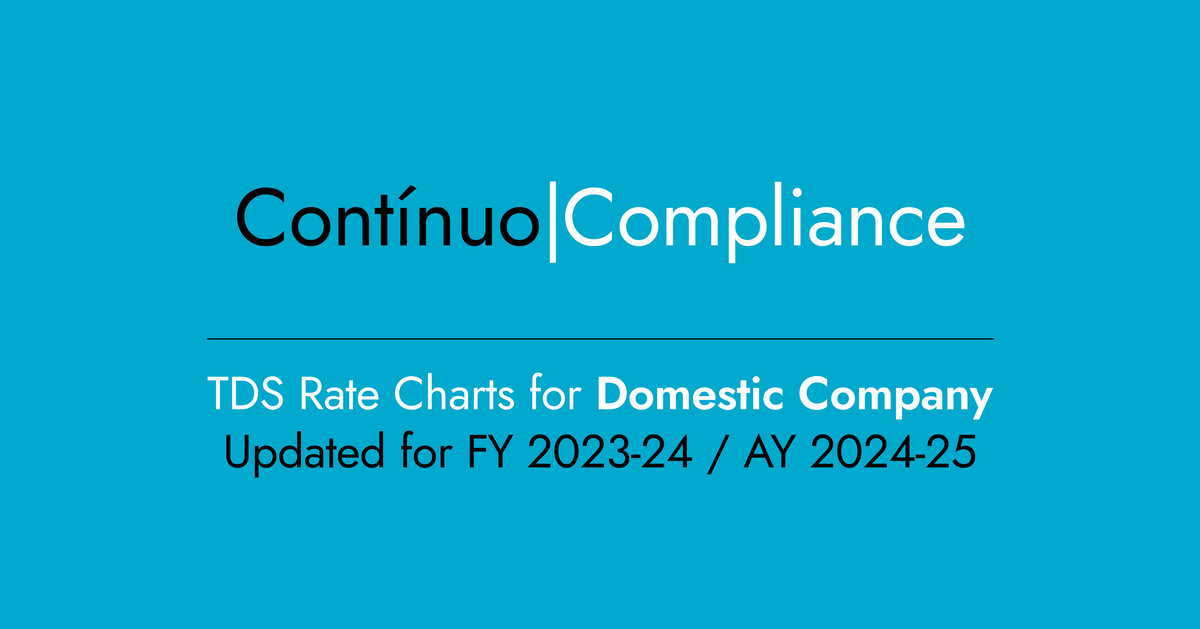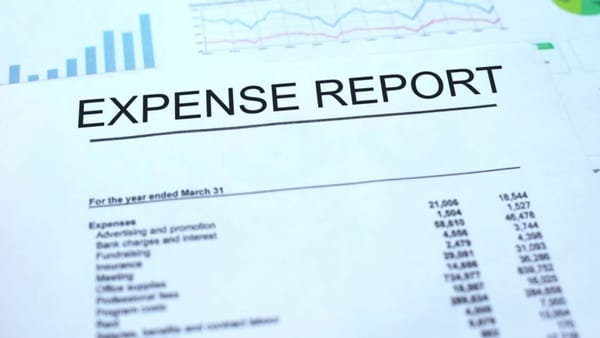TDS – What Is Tax Deducted at Source – TDS Meaning, Filing, Return & Due Dates

Understanding TDS Calculation
In order to fully comprehend Tax Deducted at Source (TDS), it is essential to have a clear understanding of how TDS calculation works. Calculating TDS involves considering various factors and applying specific formulas to determine the amount of TDS to be deducted.
TDS calculation is based on the applicable rates and the income subject to TDS. The income can include salary, interest on fixed deposits, rent, professional fees, commission, and other eligible sources of income. Each source of income has its own set of TDS rates, as specified by the Income Tax Act.
The formula for TDS calculation can be expressed as:
TDS Amount = Income Amount x TDS Rate
Let's consider an example to illustrate the TDS calculation process:
| Source of Income | Income Amount (in INR) | TDS Rate (%) | TDS Amount (in INR) |
|---|---|---|---|
| Salary | 500,000 | 10 | 50,000 |
| Interest on Fixed Deposits | 100,000 | 20 | 20,000 |
| Rent | 200,000 | 5 | 10,000 |
In this example, the TDS amounts for each source of income are calculated by multiplying the income amount with the respective TDS rate.
It is important to note that TDS calculation is an essential part of ensuring compliance with the tax laws. Accurate and timely calculation of TDS is crucial to avoid penalties and maintain a smooth tax payment process.
TDS Rates and Provisions
When it comes to Tax Deducted at Source (TDS), understanding the applicable rates and provisions is crucial. Different types of income are subjected to varying TDS rates, and it is essential to comply with the relevant regulations to avoid penalties and ensure seamless tax compliance.
TDS Rates for Different Types of Income
| Income Type | TDS Rate |
|---|---|
| Salary | As per the applicable income tax slab rates |
| Interest on Fixed Deposits (FD) | 10% |
| Rent | 10% |
| Professional Fees | 10% |
| Contractor Payments | 1% |
| Commission | 5% |
These are just a few examples, and there are various other types of income that attract specific TDS rates. Check the complete list here.

TDS Provisions and Compliance
TDS provisions outline the rules and regulations that govern the deductions. These provisions define who should deduct TDS, when to deduct it, how to deposit it, and the prescribed manner for filing TDS returns. The provisions also lay down the consequences of non-compliance, including penalties and interest charges.
"Every person responsible for deducting TDS is required to comply with the TDS provisions to ensure accurate deductions and timely compliance with the tax laws."
One of the critical provisions is the threshold limit beyond which TDS becomes applicable. For instance, if the professional fee paid during a financial year exceeds the prescribed limit, TDS must be deducted. Similarly, the provisions also specify the due dates for depositing TDS to the government and filing TDS returns.
Ensuring compliance with TDS provisions not only avoids legal complications but also contributes to the smooth functioning of the tax system. It is crucial for individuals and entities to understand and adhere to these provisions to fulfill their tax obligations responsibly.
TDS Filing Essentials
When it comes to filing Taxes Deducted at Source (TDS), understanding the essential steps and requirements is crucial. By following these guidelines, you can ensure accurate and hassle-free TDS filing. Here are the key elements you need to know:
1. Obtain Permanent Account Number (PAN)
Prior to filing TDS, it is essential to have a valid Permanent Account Number (PAN). PAN serves as an identifier that enables the Income Tax Department to track tax-related transactions. Ensure that you have a PAN before initiating the TDS filing process.
2. Determine TDS Applicability
Identify the provisions and rates under which TDS applies to your specific income category. Different transactions and income types attract different TDS rates and thresholds. It is crucial to accurately determine the applicability of TDS to avoid any penalties or non-compliance.
3. Collect TAN
TAN, or Tax Deduction and Collection Account Number, is required for individuals and entities responsible for deducting and remitting TDS. If you are liable to deduct TDS, make sure to obtain TAN from the Income Tax Department to complete the filing process.
4. Prepare TDS Statements
Create accurate TDS statements that capture all relevant details, including the deductee's PAN, TDS amounts, nature of payment, and other necessary information. Prepare these statements using the appropriate form and format specified by the Income Tax Department.
5. File TDS Returns
Once the TDS statements are prepared, file the TDS returns on time to ensure compliance with the tax laws. Use the relevant form, such as Form 24Q for salary payments, and submit the returns electronically through the Income Tax Department's designated portal.
6. Verify and Validate TDS Details
Before finalizing and submitting the TDS returns, carefully verify and validate all the details provided. Ensure that the TDS amounts, PANs, and other information are accurate, as any discrepancies may lead to penalties or delays in processing.
7. Retain Documentation
Keep a record of all relevant supporting documents, such as TDS certificates, challans, and acknowledgments, for future reference and audit purposes. Maintaining proper documentation is essential to substantiate TDS deductions and comply with legal requirements.
By following these essential steps and fulfilling the necessary requirements, you can ensure seamless TDS filing, promoting compliance with the tax regulations. Take note of the deadlines for TDS filing to avoid penalties and maintain a smooth tax process.
TDS Return Obligations
When it comes to Tax Deducted at Source (TDS), understanding the obligations and responsibilities related to filing TDS returns is of utmost importance. Filing TDS returns is a crucial step in maintaining compliance with tax regulations in India. Let's take a closer look at the process, deadlines, and penalties associated with TDS returns.
1. Process of filing TDS returns: To file TDS returns, taxpayers must first collect the necessary information and documents pertaining to TDS deductions made during the relevant period. This includes details such as deductee's PAN, TAN of the deductor, details of TDS challans, and so on. Once the necessary information is gathered, taxpayers can proceed with filing the returns electronically through the Income Tax Department's website or by using TDS return filing software.
2. Deadlines for filing TDS returns: The due dates for filing TDS returns vary depending on the type of deductor and the nature of payments. Generally, TDS returns must be filed quarterly within specified due dates. Failure to meet these deadlines can lead to penalties and late filing fees.
3. Penalties for non-compliance: Non-compliance with TDS return obligations can attract penalties under the Income Tax Act. Late filing fees, which can range from Rs.200 to Rs.10,000 per day, may be imposed for each day of delay in filing the TDS return. Additionally, interest may also be charged on any late payment of TDS.
Ensuring timely and accurate filing of TDS returns is crucial for individuals and entities to avoid penalties and maintain good tax compliance. It is advisable to stay updated with the latest regulations and seek professional guidance, if necessary, to ensure smooth TDS return filing.
Example of a TDS return filing due date table:
| Quarter | Financial Year | Due Date |
|---|---|---|
| April to June | 2022-2023 | 31st July 2022 |
| July to September | 2022-2023 | 31st October 2022 |
| October to December | 2022-2023 | 31st January 2023 |
| January to March | 2022-2023 | 31st May 2023 |
TDS Certificate and Refund
The TDS certificate and refund play a significant role in ensuring transparency and fairness in the tax system. Let's explore their importance and the processes involved.
TDS Certificate: A Testimony of Tax Deduction
The TDS certificate serves as proof of tax deductions made by the deductor on behalf of the deductee. It is a vital document that verifies the tax amount deducted, the nature of income, and the tax deposited with the government.
An individual or entity can obtain a TDS certificate by submitting a request to the deductor. The deductor, typically an employer or a financial institution, is responsible for issuing the certificate within a specified time frame.
Here's a summary of the key TDS certificate types:
- Form 16: Employees receive this certificate from their employers. Form 16 provides details of tax deducted on salary income and other allowances.
- Form 16A: Non-salary TDS deductions, such as rent, professional fees, or interest, are covered in this certificate. Individuals, not being employees, receive it.
Obtaining the TDS certificate ensures that individuals have valid documentation to support their tax compliance. It also helps in filing accurate income tax returns and avoiding discrepancies.
TDS Refund: Reclaiming Excess Tax Deducted
TDS refund refers to reclaiming the excess tax deducted at source. The refund is applicable when the total tax liability of an individual or business is lower than the TDS amount deducted.
Here are the steps to claim a TDS refund:
- File an income tax return: Individuals need to file an income tax return even if their taxable income is below the threshold for filing returns.
- Verify the TDS details: Cross-verify the TDS deducted as per the TDS certificate received from the deductor.
- Claim the refund: If the TDS amount is higher than the tax liability, claim the refund while filing the income tax return.
- Provide bank account details: Ensure accurate bank account details are provided to facilitate the direct transfer of the refund amount.
Once the income tax return is processed and verified by the tax department, the refund amount is credited directly to the taxpayer's bank account.
Claiming a TDS refund ensures that individuals receive the rightful amount of tax they are liable to pay. It helps in optimizing cash flow and managing personal finances more efficiently.
| TDS Certificate | TDS Refund |
|---|---|
| Serves as proof of tax deductions made | Reclaims the excess tax deducted |
| Helps in filing accurate income tax returns | Optimizes cash flow and personal finances |
| Issued by the deductor (employer or financial institution) | Claimed by individuals or businesses |
| Includes Form 16 for salary income | Claimed through the income tax return filing process |
| Includes Form 16A for non-salary income | Verified TDS details and bank account information are crucial for claiming the refund |
TDS Exemption and Deduction
This section focuses on TDS exemptions and deductions available under the tax laws. It explores the criteria for availing these benefits and the necessary documentation required for claiming them.
TDS Exemptions
Under the tax laws in India, certain income sources are exempted from TDS deductions. These exemptions aim to provide relief to specific categories of taxpayers and encourage economic growth. To qualify for TDS exemption, individuals and entities must meet the criteria specified by the tax authorities.
- Example 1: Agricultural income: Income derived from agricultural activities is generally exempted from TDS deductions. However, it is essential to maintain proper records and fulfill the necessary conditions to claim this exemption.
- Example 2: Dividend income from Indian Companies: Dividends received from Indian companies are exempted from TDS deductions under certain circumstances. This exemption applies to resident shareholders whose dividends do not exceed a specified threshold.
It is important to note that TDS exemptions are subject to change as per the prevailing tax laws and regulations. Therefore, it is advisable to consult a tax professional or refer to the official guidelines to determine the current exemptions applicable.
TDS Deductions
TDS deductions reduce the taxable income of individuals or entities, resulting in lower tax liability. These deductions are allowed under specific sections of the Income Tax Act, 1961. To claim TDS deductions, taxpayers must comply with the prescribed conditions and submit the required documentation.
"TDS deductions help taxpayers optimize their tax burdens by allowing them to deduct certain expenses or investments from their taxable income, reducing the overall tax liability."
Here are some common categories eligible for TDS deductions:
| Deduction Category | Applicable Section |
|---|---|
| Investments in specified schemes | Section 80C |
| Housing loan interest | Section 24(b) |
| Medical insurance premium | Section 80D |
These are just a few examples of the available TDS deductions. The Income Tax Act provides several other sections that offer deductions based on different types of payments, investments, and expenses. It is advisable to consult with a tax professional or refer to the official documentation to understand the complete list of deductions and their requirements.
By leveraging TDS exemptions and deductions, taxpayers can effectively manage their tax liabilities and optimize their financial planning strategies.
Important TDS Due Dates
This section provides an overview of the significant due dates associated with TDS compliance. It highlights the deadlines for TDS deductions, payments, and returns, ensuring timely adherence to the tax regulations.
When it comes to TDS, it is crucial to be aware of the various due dates to avoid penalties and ensure smooth compliance. Below are the important TDS due dates:
- TDS Deduction Due Date: The due date for deducting TDS from payments made to employees or vendors is typically the 7th of each month. It is essential to deduct the applicable TDS amount and deposit it with the government within this timeframe.
- TDS Payment Due Date: After deducting TDS, the next step is to pay the deducted amount to the government. For individuals and non-government deductors, the due date for TDS payment is the 7th of each month. However, for government deductors, it is the 20th of the following month.
- TDS Return Due Date: TDS returns report the details of TDS deductions made during a specified period. The due date for filing TDS returns varies according to the type of deductor. For quarterly filers, the due dates are as follows:
| Quarter | Due Date |
|---|---|
| April to June (Q1) | 31st July |
| July to September (Q2) | 31st October |
| October to December (Q3) | 31st January |
| January to March (Q4) | 31st May |
For deductors who are required to submit TDS returns on a monthly basis, the due date is generally the 20th of the following month.
It is crucial to comply with these due dates and ensure timely TDS deductions, payments, and return filings. Failure to meet these deadlines can result in penalties, interest charges, and other consequences. Therefore, it is recommended to maintain proper records and stay updated with the TDS due dates to fulfill your tax obligations in a timely manner.
Conclusion
In conclusion, this article has provided a comprehensive guide to understanding Tax Deducted at Source (TDS). We have explored the meaning of TDS and its significance in the Indian tax system. By ensuring proper TDS filing and adhering to the relevant due dates, individuals and entities can stay compliant with the tax regulations.
We have also discussed the essential steps and requirements for filing TDS, including the necessary forms and documents. Understanding TDS return obligations and meeting the deadlines is crucial to avoid penalties and maintain a seamless compliance process.
Additionally, we have highlighted the importance of TDS certificates and the procedure for obtaining them. In case of eligible refunds, individuals and entities should follow the prescribed process to claim TDS refunds accurately.
Lastly, we have touched upon TDS exemptions and deductions available under the tax laws. By fulfilling the criteria and providing the required documentation, taxpayers can take advantage of these benefits while ensuring compliance with TDS regulations.
FAQ
What is Tax Deducted at Source (TDS)?
Tax Deducted at Source, commonly known as TDS, is a system of collecting taxes directly from the source of income. It requires the person making the payment to deduct tax at specified rates before making the payment to the recipient. TDS is applicable to various types of income, such as salaries, interest, rent, professional fees, etc.
How is TDS calculated?
TDS calculation is based on the applicable rates and the income subject to TDS. The deductor determines the TDS amount by applying the prescribed percentage to the total payment amount. The specific formula and rates vary depending on the type of income and the individual's or entity's tax status.
What are the TDS rates and provisions?
TDS rates differ for different types of income. The Income Tax Act specifies specific rates or thresholds for deducting TDS on various payments. The provisions and regulations regarding TDS deductions are outlined in the Act to ensure compliance with tax laws.
What are the essential steps for filing TDS?
Filing TDS requires a series of steps to be followed. These include obtaining a Tax Deduction and Collection Account Number (TAN), timely deduction of TDS, filing TDS returns using the relevant forms, and issuing TDS certificates to the deductees. Accuracy in providing all necessary details is crucial for successful TDS filing.
What are the obligations related to TDS returns?
TDS returns must be filed by the deductor periodically to report the amount of TDS deducted and deposited. The returns should be filed within the specified due dates, as non-compliance may result in penalties. Failure to file TDS returns accurately and on time can lead to additional interest and prosecution.
How can I obtain a TDS certificate and claim a refund?
TDS certificates are issued by the deductor to the deductees, acknowledging the deduction of TDS. These certificates serve as evidence for claiming tax credits while filing income tax returns. If excess TDS has been deducted and the taxpayer is eligible for a refund, they can claim it while filing their tax returns.
Are there any exemptions or deductions available for TDS?
Yes, certain exemptions and deductions are available under the tax laws for TDS. Individuals and entities may be eligible for these benefits based on specific criteria and documentation. It is essential to understand the provisions and seek professional advice to claim such exemptions or deductions accurately.
What are the important due dates related to TDS?
Compliance with TDS regulations requires adherence to important due dates. These include the due dates for deducting TDS, depositing the deducted amount, filing TDS returns, and issuing TDS certificates. It is crucial to stay updated with these dates to avoid penalties and ensure timely compliance with tax laws.






